- Home
- >
- 2024 Annual Meeting + EXPO
- >
- Education Schedule Session Blocks
- >
- C-3: Fall Prevention Strategies that Work
C-3: Fall Prevention Strategies that Work
NAB; ANCC – 1 Hour | Wednesday, June 5th. 9:00 AM – 10:00 AM
Session Description:
Falls prevention has long been a focus for aging service providers. Over the years, providers have implemented risk assessments, various programs – like “falling star”, bed and chair alarms, supportive equipment – like low beds and fall mats, restorative exercise, and passive monitoring devices, and yet, residents continue to fall, and many experiences serious injuries. Falls continue to be the most frequent liability claim for aging services providers and the judgments and settlements carry the greatest incurred cost. Providers have shared their challenges — the residents who do not wish to participate in the afternoon activity where they are observed more closely. Instead, they wish to return to bed in the afternoon for a nap. As the groggy residents rise from their naps and make their way unassisted to the bathroom, they are at high-risk of suffering a fall. Also, a challenge is the rehab residents, who refuse to use their walkers or canes despite endless education. As are the residents who have varying sleep patterns and rise quietly in the night in the wee hours of the morning. Whether they get up thinking it is morning or to go to the bathroom or to get dressed. The early riser is at high-risk for falls. Providers have searched for effective solutions to keep their residents safe; even investing in state-of-the-art technology! However, we recognize that technology alone cannot prevent a fall.In this panel discussion, providers will review the early adoption of one technology solution to reduce resident falls. They will share successes and lessons learned from the adoption. They will also share the reason they invested in a second technology solution. The providers will describe successes and lessons learned. Finally, the panel will share key principles that your organization can use to reduce resident falls. Principles to partnering technology as a tool together with creative risk management programs and strategic documentation elements to reduce falls, but also to reduce potential claims in the event of a fall.
Learning Objectives:
Describe the limitations of technology in reducing resident falls.
State the advantages of using technology for root cause analysis.
Identify ways to improve the implementation of technology for falls prevention.
Speakers:
Bette McNee, Vice President, Clinical Safety, Graham Company
Bette McNee joined Graham Company in 2014 and is a member of the Safety Services Department working with clients in the Health and Human Services industry. In her role as vice president of clinical safety, she partners with clients to identify and decrease risk exposures in every aspect of operations from hiring staff to discharging clients home. Bette has over 30 years’ experience as a registered nurse and nursing home administrator and through this experience, developed a renewed approach to risk management and quality improvement that is creative and collaborative based on approaches that are consistent with best practices, but also sensitive to the constraints and pressures of today’s busy work environment.
Charlene Harn, Administrator, Parker at Somerset
Charlene Harn, a skilled professional in healthcare management, serves as the Administrator at Parker at Somerset, a nursing care residence in Somerset NJ. Prior to serving as the administrator at Parker, Charlene was the LNHA for Hackensack Meridian Health at the West Caldwell Care Center, and has over a decade of executive administrative experience within the healthcare sector.
Rowan Reyes, Director of Nursing, Parker Life
Rowan is originally from the Caribbean Island of Trinidad. Together with her family, she immigrated to the United States and became an American citizen. Rowan began her career as a nursing assistant at Parker – the same organization where she currently works. She completed the certification program and began working with dear residents. She set her sights on becoming a nurse. With her deep passion for elders and the support of her family she began nursing education. Rowan completed her undergraduate degrees in Nursing and Business with a specialization in Health Care Management and a graduate degree in Nursing. Rowan is a passionate nurse leader and mentor for her teams.
Mary Jo Vetter, Chief Clinical Officer, Parker Health Group
Mary Jo Vetter, Chief Clinical Officer at Parker Health Group, is a Rutgers Newark alum with a Doctorate of Nursing Practice. Prior to her role with Parker, she was a Clinical Associate Professor at NYU where she was the DNP Program Director, and Graduate faculty teaching Research, Evidence Based Practice, Innovation, and Quality Improvement curricula.


